Why have you chosen a career in art?
At school I was always sketching and drawing. At university and as an engineer responsible for major and national projects, art became my safety valve. When I ended my career I felt like a massive flying-wheel rotating with inertia brought to an immediate, shuddering stop. Immersing myself in my art, my solace, was the most natural step. My second career took off from there.
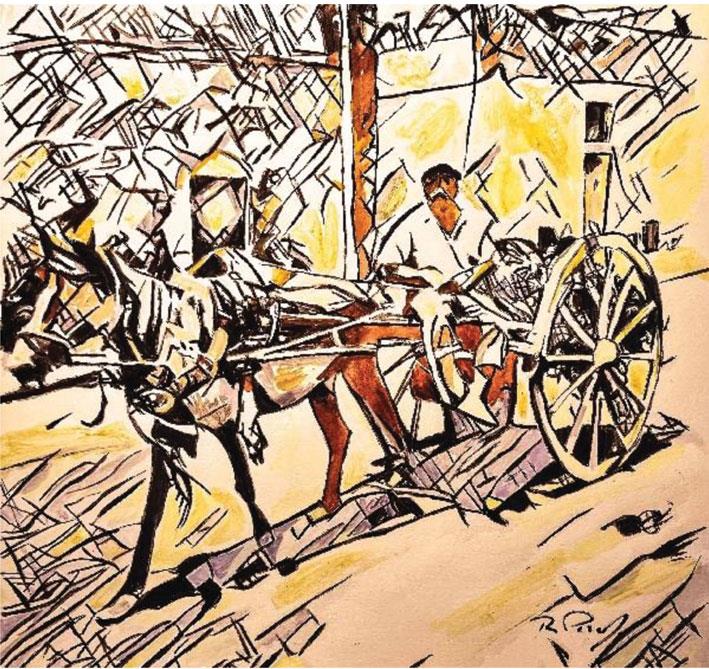
What started you drawing and painting?
I began studying art in the early 1970s under the tutelage of Antione Camilleri, at the Lyceum secondary school. I bought my first oil tubes and brushes when, as a student of the Lyceum, I was asked to work on restoring a statue of the Madonna in a monastery. There was no turning back after that.
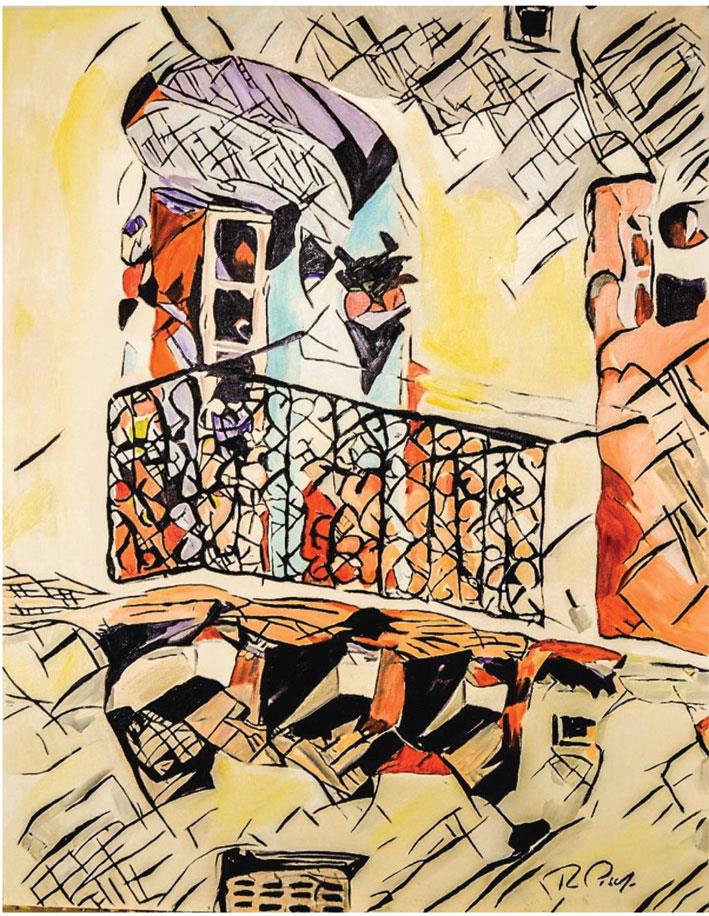
Are any members of your family artists? Is Art in your DNA
Nobody in my family has the creative art gene except for one of my twin daughters, Clare, who has photography in her DNA. However, I still have hope as my grandchildren are showing signs of being creative. I would be happy for them to follow in my footsteps, pursue a career they love and express emotion through their art.
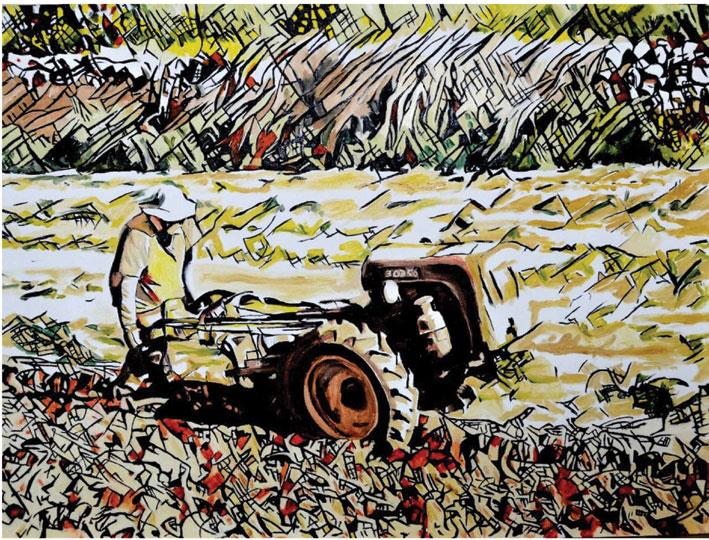
Are you formally trained as an artist or are you self-taught?
I am a self-taught artist but I have attended workshops by renowned master artists to enhance my techniques, namely Anton Calleja (Malta - life classes), Hubert Scheibl (Salzburg), Amadou Sow (Venice), George Muscat (Malta -ceramics) and Luciana Notturni (Ravenna- mosaics).
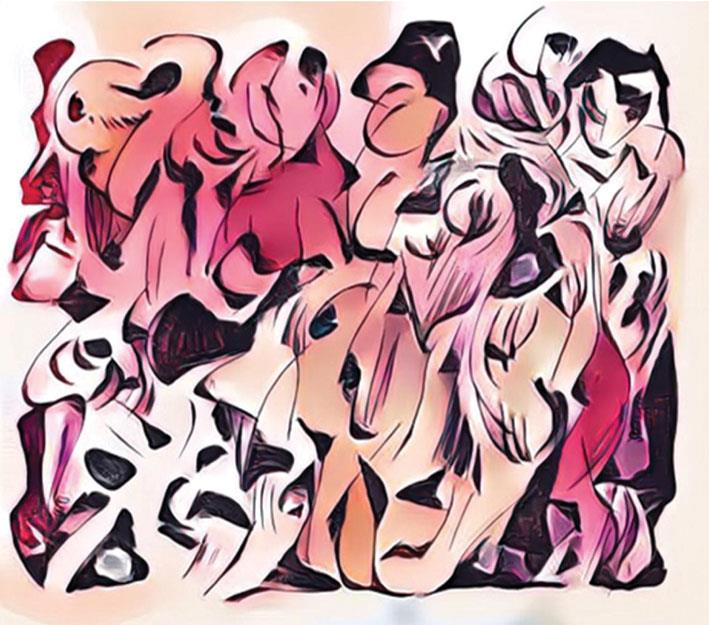
What are the challenges facing artists in Malta?
Limiting my answer to artists, the biggest challenge is ensuring that all artists have equal access to funding and support to showcase their art. Currently, some artists seem to receive preferential treatment.
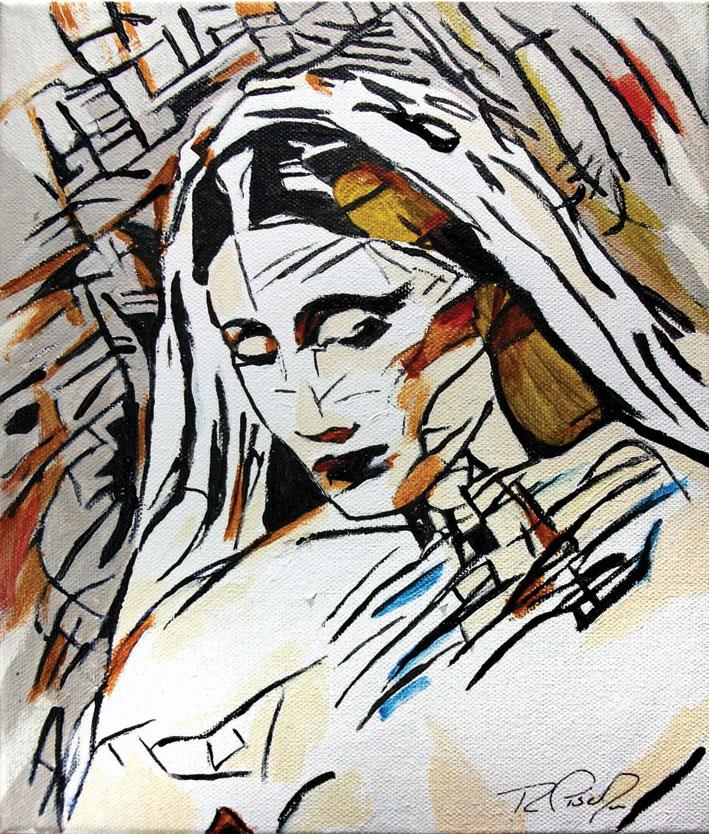
Tell me about a day in your life a an artist
My days only differ from one another by the colours on the canvas. I begin my 18-hour workday with coffee and choosing the music that will fill the studio, accompanying me as I work. When I'm starting a new painting, I lay the roll of canvas on the floor and measure the area that needs to be cut to fit onto the wooden stretcher. Then I stretch the canvas, staple it to the frame, prime it, and leave it to dry. When I finish a painting, I sit with it, absorbing it until I'm satisfied it's complete. Then I sign it.

What is your favourite and least favourite aspect of being a professional artist?
The ability to focus on my art, using it to communicate my feelings is priceless. I'm fortunate that as a retired engineer, I don't rely solely on the income from my art and am never motivated by thoughts of an artwork's potential sale.
My least favourite aspect of this career is the need to 'market' my art to keep it at the forefront of the community's attention.
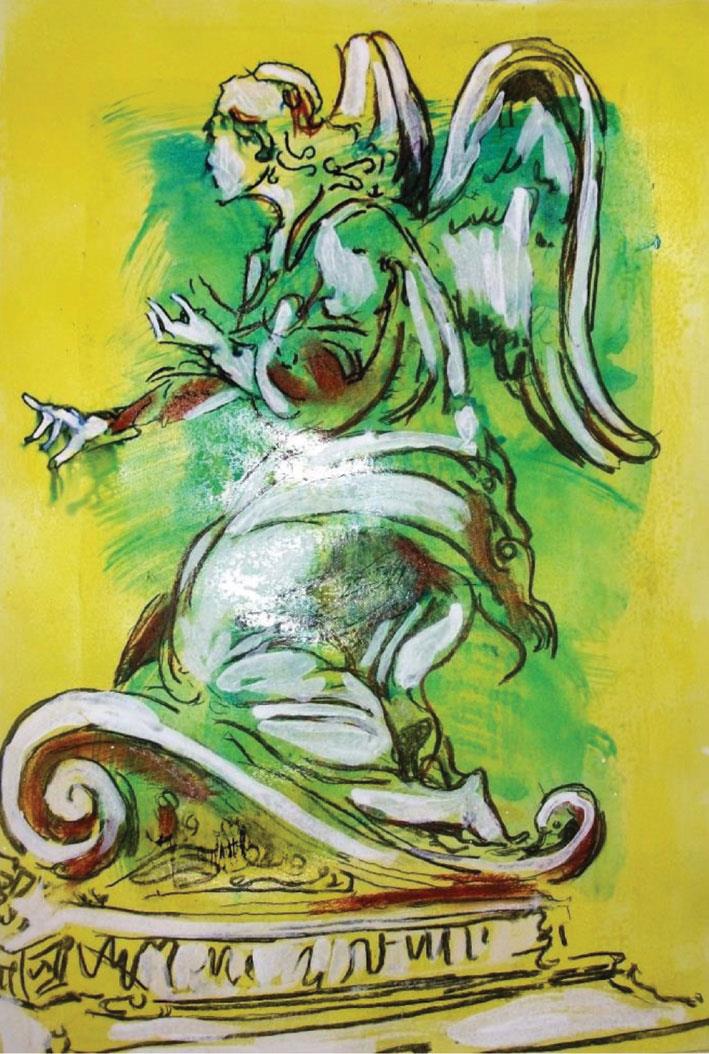
Do you think networking with other artists is important? If so how do you go about it?
The importance of networking exceeds art. It is a human need, allowing us to share values and ideas with our community. Since my voice prevents me from speaking for long periods, I try to maximise my social media presence to engage with artists and the public.
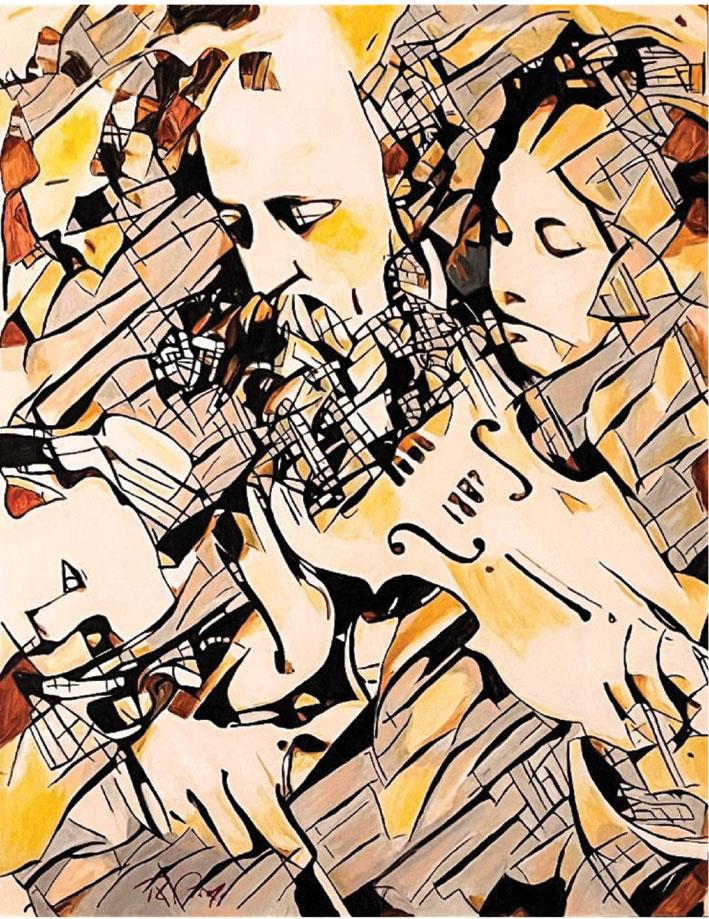
How are you preparing for next week's exhibition?
This is probably my greatest effort to date as I am showing 72 paintings, created over the past 24 months.
I have grouped the paintings into two distinct exhibitions, one following the other and I assure your readers that it is worth their time to visit both collections.
The first collection of 'A Vision of Humanity and the Psyche', runs from 2nd to 15th September and the second from 17th to 29th September at The Wignacourt Museum.
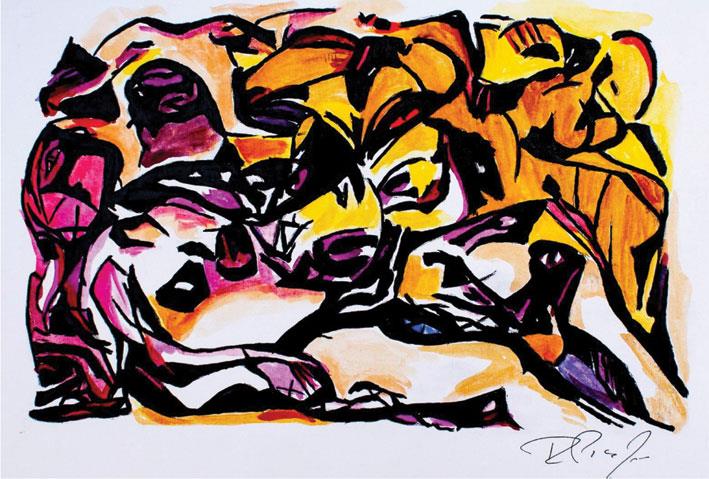
What is your ideal work environment and why?
I am happiest working in my well-lit studio with my music playing, surrounded by my tubes of paints and mediums and using the wooden easel I made myself 15 years ago.
Has your style changed over time?
Yes, my style has changed pari passu with the predominant mood and changing environment of our world. I started painting with vivid colours but the tone became subdued when Covid struck. Now I have sort of rebelled at those constraints and returned to more spontaneous line art with a stronger accent of lines and colours.
How do you define success as an artist?
A successful artwork communicates with the viewer, enabling them to understand the message beneath the paint. The purpose of art is not art, but the discovery of meaning, ultimate, final, obtained through the depiction of objects with a 'pen' which records and interprets.
Where do you find inspiration for your art?
I am particularly attracted to themes of human emotions, suffering, love, solidarity, conflicts, and memories.
All my experiences inspire my art: music, world events, personal experiences, actions by humans on humans, and quiet moments. It's inconsistent for an artist not to have influences or inspirations. How can you influence others if you are not influenced yourself?
Do you have a favourite piece of art you made yourself and which you would never sell or give away?
The painting I will never part with is 'The Deposition from the Cross' which I exhibited at the 2002 Mdina 4th Biennale of Christian Art 2002. I painted it in 2001 in a contemporary style inspired by Picasso following the surgeries that resulted in me permanently losing my voice.
Which famous world artists do you admire?
I have been inspired and influenced by the art and lives of many past masters including the French and Italian masters, van Gogh, Gerhard Richter, Basquiat, Jackson Pollock and others but perhaps the two that influenced my way of drawing line art and painting are Pablo Picasso and George Condo.
How do you feel the internet, Facebook have impacted the world of art? For better, for worse or indifferently?
Used wisely, the internet and social media are important tools for an artist. We have instant access to information and knowledge previously only available in books or by visiting places personally. We can visit art museums virtually, immersing ourselves in the exhibits. Social media connects us with friends but misleads us with fake news. The introduction of Artificial Intelligence will most probably distort humanity's intelligence.
What is the best advice you've been given when it comes to art?
I have followed the advice of my friend, art critic and curator EV Borg who says, 'forget the subject - focus on the concept'. The formation of the concept in my mind is far more important than the subject I wish to portray.
What message or advice would you give to those wanting to make their career as artists?
Take advantage of any tips, advice or help given to you. Don't be inhibited, feel free to do what you want. Variety is the spice of life. Keep moving like a sailboat with the wind in your sail and let the waves part ways at the bow. Work hard and be innovative, never be afraid to experiment with media and styles.
What is something you now know that you wish you had known before?
Life can change at any second and so can I. Luckily, I learnt this early on when life events marred the joy of being happy and pleased with the life I started to build up for myself and my loved ones. At first the natural reaction was to fight problems as soon as they appeared. I quickly realized that I had to change and see life from another angle and strike a balance.
Artist Ray Piscopo will be exhibiting two bodies of work under the collective title A Vision of Humanity and The Psyche. The works will be shown at the Wignacourt Museum, in Rabat. These collections of paintings are divided into two styles. A semirealistic approach and a more post-modernist, contemporary style using minimalist figurative art to achieve a direct message to the viewers. The two collections will be exhibited separately, the first one running between September 2 and 15, with the second following between September 17 and 29.